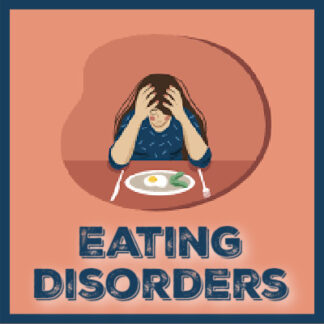Description
Duration:
120 minutes including a Q&A
Includes:
• A certificate of completion
• The on-demand recording to watch at your convenience
• A handout in PDF format for viewing or self-printing
Objectives:
Participants will be able to:
1. Discuss the most recent research on readiness and motivation for change
2. Describe how to conduct a readiness assessment with individuals who have eating disorders
3. Review collaborative care principles and research supporting its use
4. Identify common pitfalls and how to overcome them in practising collaborative care
5. Learn to use the Short Treatment Allocation Tool for Eating Disorders in determining optimal level of care
Description:
Both Anorexia Nervosa (AN) and Bulimia Nervosa (BN) are marked by a serious course of illness and poor outcomes in many of the afflicted individuals. In AN, there is an almost 18-fold increase in mortality including a high suicide rate, or in 20% of cases, the illness continues a chronic course. The longer-term outcome of BN is only slightly better, with a lower mortality rate. While early diagnosis and treatment are important to prevent serious medical conditions, treatment can be successful for those who have suffered for many years and have not succeeded in previous treatments. With proven treatment methods and a strong desire to overcome the disorder, individuals suffering from eating disorders can recover. Additionally, when health care professionals work with the family members and other “carers”, this “collaborative care” can be very effective.
What are the factors in treatment that lead to better outcomes? How can these factors be maximized and applied in treatment? What are the unhelpful patterns and other common pitfalls the health care team can encounter in collaborative care and how can they be overcome? How can health care professionals use the Short Treatment Allocation Tool for Eating Disorders to optimize care of eating disordered clients? Join our clinical expert and psychologist Dr. Josie Geller to hear how these advances in treatment can radically improve outcomes for this population.
Who Should Attend?:
• Staff in Eating Disorder Clinics, Mental Health Nurses, Psychiatrists, Psychologists, Social workers
• Primary Care Physicians, Pediatric Nurses, Child and Adolescent Counsellors, Child Life Specialists
• Recreational Therapists, Occupational Therapists, Art Therapists
• Mental Health Managers and Educators
 Dr. Josie Geller, Ph.D, R. Psych
Dr. Josie Geller, Ph.D, R. Psych
Dr. Josie Geller Ph.D, R.Psych is an Associate Professor in the Department of Psychiatry at the University of British Columbia and the Director of Research at the Provincial Adult Tertiary Specialized Eating Disorders program at St. Paul’s Hospital. The primary focus of her clinical research is patient-centered, collaborative care that promotes client autonomy, well-being and best outcomes. She is interested in client readiness and motivation, therapeutic alliance, and self-compassion. While Josie’s work has focused primarily on the assessment and treatment of individuals with eating disorders, her clinical and research interests have been applied to other populations, including HIV, substance use and obesity. She is widely published and an internationally renowned speaker.


